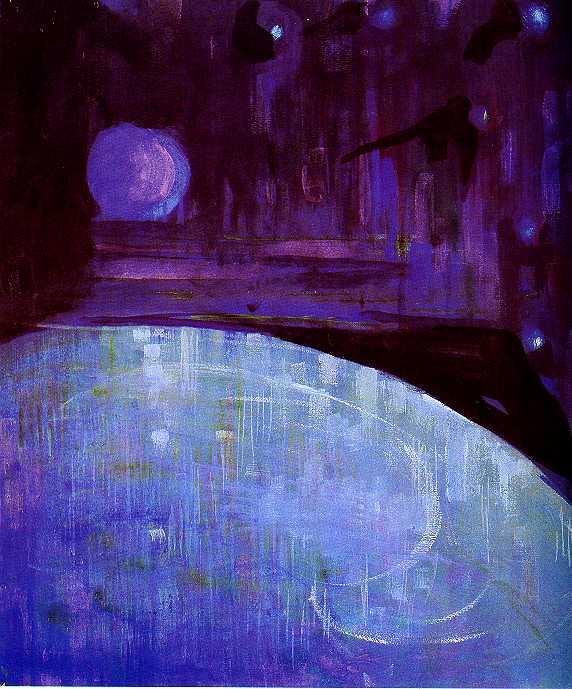“…we must declare that this Cosmos has verily come into existence as a Living Creature endowed with soul and reason… a Living Creature, one and visible, containing within itself all the living creatures which are by nature akin to itself.”
Plato, Timaeus, 30b-d
What is form? Is the form that which forms or that which is formed?
Form both forms and is formed. Split between these two processes, the circuit of formation assembles the form, an ellipsis between actor and acted-upon, subject and object. Ghosts congregate along the edges of electron clouds, probability staticking the air with possibility, fizzy being as poppy modality. Does a form reside anywhere? Is a form here or there, now or then? Can we touch them, hear them, see them? Can we transform them, create them, destroy them? Can we storm the palace walls?
For Plato, the forms are out-there, transcendent, beyond, the world as the sculptor’s imagination, the dreamscape of categories shadowing over the land. The Demiurge architects nature from the forms, the floorplan of the good and beautiful, pathways within and between the geometry of the One groaning into imaginary labyrinths. All emanates from the forms, becoming immanent through the work of the Demiurge, the first-labor that materializes the immaterial.
But are these forms really material? What does a form taste like? What does it smell like? Can I run into one and be bounced back? Does it wobble? Does it stim? Does it have flesh and breath, heartbeat and sweat, song and thought? Are these forms us or are they not-us, out-there or within?
Turning Plato upside down, the Demiurge appears as a gateway, the abstraction of concrete form into Idea. No longer out-there, the forms are realized in all things, animation as perpetual architecting, the groove of matter discoing into the multiplicity of life. You and I and we and us and this and that and here and there and now and then as formed and forming, forests growing atop abandoned caves. The Demiurge is a myth, burning down the dance club and reciting sickly sweet poetry on its ashes, gumming difference into chewable sameness. The Demiurge appears whenever we imagine ourselves as gods, whenever we pass through Hades and forget our mortality, forms becoming separate from us rather than something we inhabit, something to glimpse but never touch, to speak of but never kiss, to recite but never love. Flat words on a page imagined to be the tangible curves they represent.
To inhabit the forms we must re-member. Returning to our formed and forming nature, we recognize what we have formed and what has formed us, nature emanating through us rather than from us. Saunterers by heart, we homo sapiens walk through a world of multiplicity and echopraxy, but as the garbage heap of our architected ideas obscure our paths we forget the forest and see only a paved road. We mistake the real for simulacra and simulacra for the real, nature becoming something to be acted-upon rather than that which acts, while our idols – capital, law, nation, race, patriarchy – become something solid beneath us, an unalterable earth. Nature ceases to be as Leviathan devours being, the nothing expanding as it consumes the cosmos. We imagine ourselves as lords over nature while our images have become lords over us, demonic machinery as a Demiurge of fire, the Moloch of ontological arson.
Rebellion means smashing the forms that we have created, killing the Demiurge within to join with all as formed and forming. Through rendering our icons to dust, becoming traitors to the abstract, we resist the power which emanates from us but which has become separate from us, the ghost of human self-idolatry. Destroying the forms, we enter the space of formlessness to re-assemble ourselves as formed and forming, insurrection becoming creativity, anarchy becoming community, and Leviathan becoming Pan. A riot of the soul.
“O evanescent temples built of man
Eleanor Farjeon, “Pan-Worship”
To deities he honoured and dethroned!
Earth shoots a trail of her eternal vine
To crown the head that men have ceased to honour.
Beneath the coronal of leaf and lichen
The mocking smile upon the lips derides
Pan’s lost dominion; but the pointed ears
Are keen and prick’d with old remember’d sounds.
All my breast aches with longing for the past!
Thou God of stone, I have a craving in me
For knowledge of thee as thou wert in old
Enchanted twilights in Arcadia.”
Image: Creation of the World III, Mikalojus Konstantinas Ciurlionis (1906)

Leave a comment